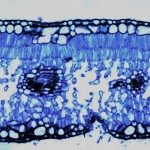Lien vers Pubmed [PMID] – 17617842
J Travel Med 2007 Jul-Aug;14(4):209-14
BACKGROUND: The manners of traveling and travelers’ vulnerability to infection are changing: increasing numbers of travelers, travels at the extreme ages of life, “backpacker” tourism in close contact with local populations. What is the epidemiologic situation and what are the trends of imported cholera to Metropolitan France?
METHOD: A descriptive retrospective study was undertaken on all the confirmed cases of cholera imported to France, and notified from January 1, 1973, to December 31, 2005, using compulsory notification data from local health departments and information from the National Reference Centre.
RESULTS: A total of 129 imported cases of cholera were notified between 1973 and 2005 (3.9 cases/y on average). The geographical sources of infection have changed with time: in the 1980s, 94% of the patients were infected in Maghreb (Morocco and Algeria) but none were in 2000. On the other hand, Asia and West Africa progressively emerged and now predominate. In spite of certain poorly informed data and possible underdetection, the number of cases of importation appears to be low and falling.
CONCLUSIONS: The patient profile seems to have evolved and increasingly concerns people at the extreme ages of life, living elsewhere than the principal basins of immigration in France, and diagnosis is increasingly made in nonteaching hospitals. The lessons likely to help clinicians will be discussed.


